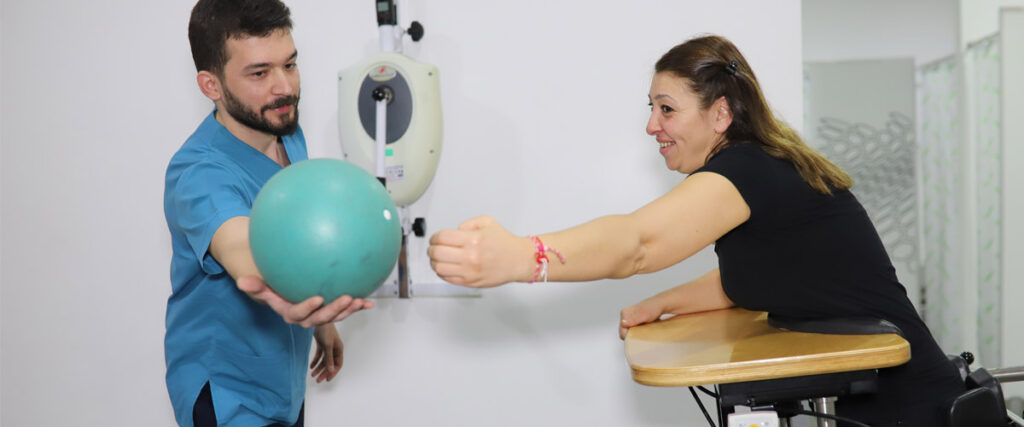Pelvic Floor Rehabilitation

At Rommer International, we strengthen, enhance flexibility, and improve coordination of your pelvic floor muscles with customized treatment plans and the latest technology rehabilitation methods. Our specialized physiotherapists offer effective and personalized services aimed at resolving your pelvic floor issues, using advanced technology and the latest rehabilitation techniques to provide you with a healthier and […]
Walking and Balance Disorder Rehabilitation
Walking and balance is an important function that takes place through the harmonious functioning of certain parts of the nervous system. There can be many causes of impairment of this function, for example, neurological diseases, muscle diseases, nerve damage, prosthetic surgeries, etc. can cause these disorders. Such impairments can negatively affect daily life and increase […]
Drop Foot Syndrome and Treatment
Walking and balance is an important function that takes place through the harmonious functioning of certain parts of the nervous system. There can be many causes of impairment of this function, for example, neurological diseases, muscle diseases, nerve damage, prosthetic surgeries, etc. can cause these disorders. Such impairments can negatively affect daily life and increase […]
Facial Paralysis and Treatment
Facial paralysis is a condition that occurs when the facial nerve, which controls the movement of the facial muscles, loses its function for any reason. It is usually unilateral and may be central or peripheral. Bell’s palsy is the most common form of facial paralysis and its cause is unknown. Conditions such as stroke can […]
Geriatric Rehabilitation (Rehabilitation in the Elderly)
Geriatric rehabilitation covers the efforts made to maximise the functional status of the elderly person in cases such as physical inadequacy, illness and disability. It aims to improve the quality of life of the elderly and reduce the social economic burden. Rehabilitation programmes should be implemented taking into account individual needs. Functional assessment should be […]
Parkinson’s Disease Rehabilitation
Parkinson’s disease is a progressive neurological disorder characterised by the loss of dopamine-producing nerve cells in the brain. Parkinson’s disease usually presents with symptoms such as tremors, slowing of movements, muscle stiffness and impaired posture. It is treated with medication and physical rehabilitation is also an important part of the treatment. Rehabilitation programmes include a […]
Spinal Cord Injuries and Rehabilitation
Spinal cord injuries are injuries to the bones of the spine, the spinal cord or both. They can occur as a result of various accidents and can result in fractures of the bones surrounding the spinal cord. These injuries can lead to damage to the nerves surrounding the spinal cord, which can cause loss of […]
Multiple Sclerosis (MS) Rehabilitation
MS (Multiple Sclerosis) is an autoimmune disease caused by a defect in the immune system that results in an attack of its own cells against its own brain and spinal cord. MS is a chronic and progressive disease of the central nervous system and is characterised by various symptoms such as limitation of movement, weakness, […]
Hemiplegia – Stroke (Paralysis) Rehabilitation

Hemiplegia or stroke is a syndrome characterised by impaired function in one half of the body as a result of changes in cerebral circulation. Brain haemorrhage, clot, embolism, etc. may be the cause. Loss of function on one side of the body may be accompanied by various impairments such as speech, balance, […]